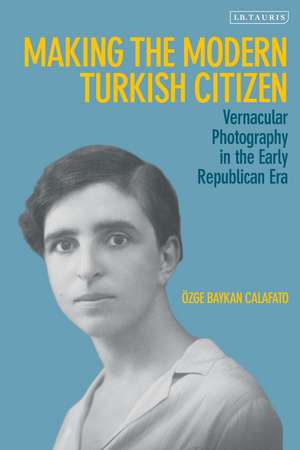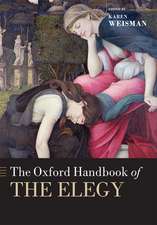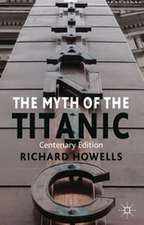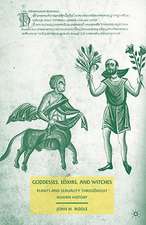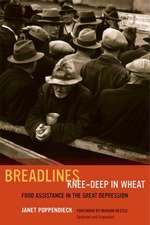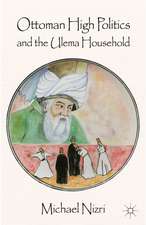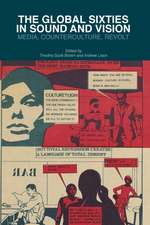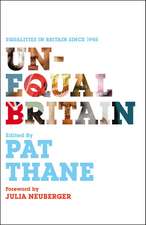Making the Modern Turkish Citizen: Vernacular Photography in the Early Republican Era
Autor Özge Baykan Calafatoen Limba Engleză Paperback – 24 iul 2024
| Toate formatele și edițiile | Preț | Express |
|---|---|---|
| Paperback (1) | 193.62 lei 3-5 săpt. | +74.42 lei 7-13 zile |
| Bloomsbury Publishing – 24 iul 2024 | 193.62 lei 3-5 săpt. | +74.42 lei 7-13 zile |
| Hardback (1) | 542.77 lei 3-5 săpt. | +118.68 lei 7-13 zile |
| Bloomsbury Publishing – 23 feb 2022 | 542.77 lei 3-5 săpt. | +118.68 lei 7-13 zile |
Preț: 193.62 lei
Preț vechi: 250.59 lei
-23% Nou
Puncte Express: 290
Preț estimativ în valută:
37.05€ • 38.22$ • 30.92£
37.05€ • 38.22$ • 30.92£
Carte disponibilă
Livrare economică 05-19 martie
Livrare express 19-25 februarie pentru 84.41 lei
Preluare comenzi: 021 569.72.76
Specificații
ISBN-13: 9780755643318
ISBN-10: 0755643313
Pagini: 256
Ilustrații: 110 colour illus
Dimensiuni: 156 x 234 x 25 mm
Greutate: 0.45 kg
Editura: Bloomsbury Publishing
Colecția I.B.Tauris
Locul publicării:London, United Kingdom
ISBN-10: 0755643313
Pagini: 256
Ilustrații: 110 colour illus
Dimensiuni: 156 x 234 x 25 mm
Greutate: 0.45 kg
Editura: Bloomsbury Publishing
Colecția I.B.Tauris
Locul publicării:London, United Kingdom
Caracteristici
Examines the materiality of vernacular photographs as objects by looking at the circulation of prints among family, friends, colleagues and in other social networks contributed to the reproduction of national identity in Turkey
Notă biografică
Özge Baykan Calafato is Guest Researcher at University of Amsterdam, the Netherlands. Since 1999, she has worked as a journalist, editor and translator for several magazines focusing on photography, literature, contemporary art, film, jazz and travel.
Cuprins
IntroductionPart I: Photography, Gender and ModernityChapter One: The Construction of the New Turkish WomanChapter Two: Modern Turkish MasculinitiesPart II: The Making of the Modern BodyChapter Three: Pose, Posture and Props as WorldmakingChapter Four: The Bodies of the RepublicPart III: Photography and Space-MakingChapter Five: Photography's DomesticationPart IV: Photography, Materiality and LanguageChapter Six: Disseminating CitizenshipConclusionReferences
Recenzii
"Offering sophisticated analyses of a selection of vernacular photographs, this book traces how the construction of the modern Turkish citizen can be found in such pictures, with a particular emphasis on their articulation of gender, bodies, spaces and language. Although embedded in a social history of Turkey, Ozge Calafato's complex study will be of interest to anyone who cares about photography and its capacity for individual and collective agency. Highly recommended!"
"Calafato's close reading of vernacular photographs offers a refreshingly nuanced, complex and ambivalent picture of early republican Turkish society beyond the cliches of official representations. Like a detective working with visual clues, she analyzes studio portraits, family pictures and ordinary snapshots for the gender and class performativity of their urban middle-class subjects, pointing out subtle negotiations between the normative and the subversive in these images. Drawing on photography theory, visual anthropology, gender and cultural studies, the book represents critical interdisciplinary scholarship at its best. Well researched, well written and delightful to read, it is a most welcome contribution to studies of Turkish modernity and national identity construction."
"Özge Calafato has written a ground-breaking study of photo history in Turkeyand beyond, placing rarely seen vernacular photographs at the center of a farreachinganalysis of the formation of the modern citizen in the new TurkishRepublic. Through her extensive research and deft examination of a photo archiveshe assembled, Calafato demonstrates the value of often overlooked everydayphotographs in understanding complex political and social transformations."
"A fascinating, highly-readable and enjoyable work on the early Turkish Republic that finallygives photography the attention it deserves. Calafato uses photography to demonstratehow Turkish citizens actively participated in the process of making a modern nation."
"Methodologically satisfying and empirically rich, this meticulously-researched study of the mass of everyday photographs demonstrates photography's integral role in the creation of modern identities. Carefully balanced between macro- and micro historical narratives, it reveals photography to be an incisive and indispensable prism through which to consider larger analytical questions around class, gender and modernity, ideology, politics and social change, not only in Turkey but in the wider historical landscape. Throughout the images, from photo albums to advertisements, are richly revealing of the hopes and desires that clustered around photographs in fast-changing society of the mid-twentieth century."
"Calafato's close reading of vernacular photographs offers a refreshingly nuanced, complex and ambivalent picture of early republican Turkish society beyond the cliches of official representations. Like a detective working with visual clues, she analyzes studio portraits, family pictures and ordinary snapshots for the gender and class performativity of their urban middle-class subjects, pointing out subtle negotiations between the normative and the subversive in these images. Drawing on photography theory, visual anthropology, gender and cultural studies, the book represents critical interdisciplinary scholarship at its best. Well researched, well written and delightful to read, it is a most welcome contribution to studies of Turkish modernity and national identity construction."
"Özge Calafato has written a ground-breaking study of photo history in Turkeyand beyond, placing rarely seen vernacular photographs at the center of a farreachinganalysis of the formation of the modern citizen in the new TurkishRepublic. Through her extensive research and deft examination of a photo archiveshe assembled, Calafato demonstrates the value of often overlooked everydayphotographs in understanding complex political and social transformations."
"A fascinating, highly-readable and enjoyable work on the early Turkish Republic that finallygives photography the attention it deserves. Calafato uses photography to demonstratehow Turkish citizens actively participated in the process of making a modern nation."
"Methodologically satisfying and empirically rich, this meticulously-researched study of the mass of everyday photographs demonstrates photography's integral role in the creation of modern identities. Carefully balanced between macro- and micro historical narratives, it reveals photography to be an incisive and indispensable prism through which to consider larger analytical questions around class, gender and modernity, ideology, politics and social change, not only in Turkey but in the wider historical landscape. Throughout the images, from photo albums to advertisements, are richly revealing of the hopes and desires that clustered around photographs in fast-changing society of the mid-twentieth century."
